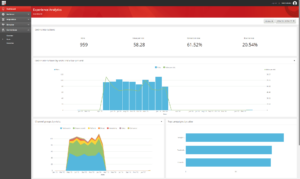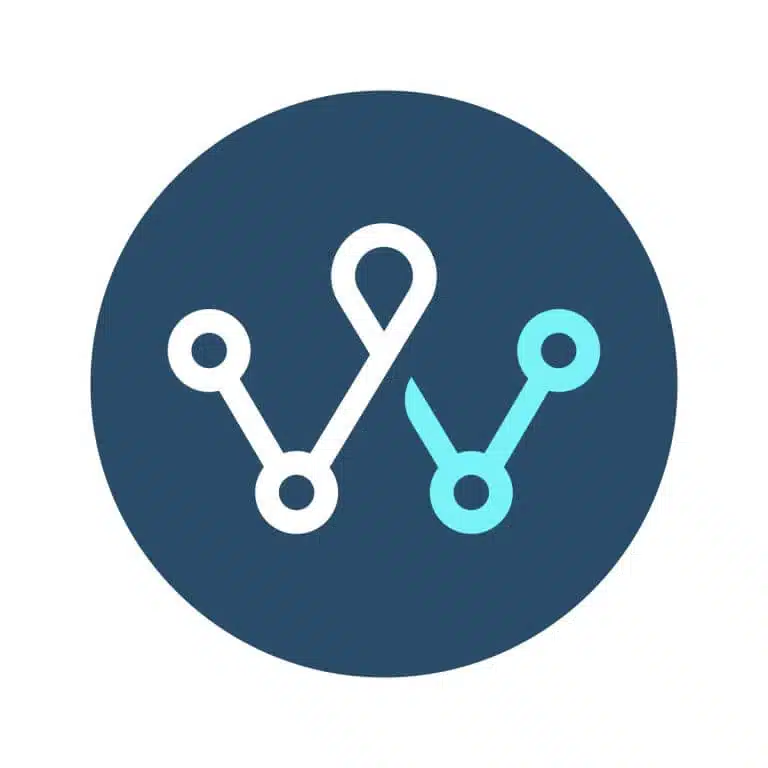A Comprehensive Guide to Everything You Ever Wanted to Know About Sitecore CMS
Forrester, a well-known market research company, acknowledged Sitecore as a “Strong Performer” in its The Forrester Wave™: Content Marketing Platforms for B2C Marketers, Q2 2019) report. In the 2019 Gartner Magic Quadrant, a well-researched market report published by the global IT consulting firm Gartner, Sitecore has held the position of ‘Digital Experience Platform Leader’ for ten solid years.
So, it’s not surprising that many organizations with high-traffic websites in various industries rely on Sitecore CMS to deliver memorable brand experiences across multiple customer touchpoints.
But what is Sitecore? And why is it considered one of the best enterprise-grade CMS available today? If you have these questions, then this comprehensive guide is for you. Here, we will address common questions about Sitecore CMS:
- What is Sitecore?
- How can organizations benefit from Sitecore CMS?
- What are the elements of the Sitecore CMS architecture?
- What is the difference between Sitecore Experience Manager (XM) CMS and Sitecore Digital Experience Platform (DXP)?
Sitecore CMS – What is Sitecore?
Sitecore is an enterprise-level .NET-based Content Management System (CMS). Officially, the Sitecore CMS (or Web CMS) is known as Sitecore Experience Manager (XM).
With Sitecore Experience Manager™ (XM) CMS, brands can:
- Write scalable, optimized content once, preview it in the WYSIWYG (What You See Is What You Get) editor, and then distribute it to every relevant marketing channel
- Tailor content with customizable rules
- Simplify multi-site integrations and management, even for non-Sitecore websites and data
- Create websites in multiple languages
- Create mobile-ready content and websites
Launched in 2001, the Sitecore platform takes advantage of the flexibility, scalability, and security offered by the .NET framework. Sitecore XM incorporates a fully customizable, role-based access control system and a powerful desktop interface similar to a Windows desktop’s look, feel, and functionality. This feature makes it easy for new Sitecore experience platform users to learn the system and effectively leverage it for their brand’s marketing goals.
But there’s a lot more to the Sitecore platform than its multi-functional, powerful CMS. Sitecore also offers an integrated Digital Experience Platform (DXP) that helps organizations create seamless, personalized digital experiences for their audience over multiple channels and devices. So, with Sitecore, you can not only ‘manage’ your brand’s digital content; you can also test, optimize, and personalize it. Furthermore, by combining contextual intelligence with omnichannel automation, the Sitecore Experience Platform enables you to automate the content creation and publishing process, thus empowering you to deliver the right message to the right person at the right time. Finally, by collecting and analyzing all customer interaction data, both online and offline, Sitecore enables brands like yours to further improve and optimize their content marketing strategy.
So, the million-dollar question is: Is Sitecore a Content Management System (CMS) or a Digital Experience Platform (DXP)?
We will answer this question in a later section. But first…
What are the Benefits of Sitecore over other CMS?
Sitecore XM includes a comprehensive suite of features to help brands take complete control over their content capabilities, from editorial, workflow and reporting, to organization, security, and even user administration. With these tools, Sitecore provides a robust foundation to support a brand’s digital identity, strategy, and engagement.
Here are some of the benefits that differentiate Sitecore from other CMS:
Scalable content creation with omnichannel delivery
With Sitecore XM, you no longer need to re-create content for each website, platform, or channel for your brand. The Sitecore Experience Platform offers total flexibility to create extractable, decoupled content only once and then display it across all devices, including mobile, and multiple additional channels including IoT, VR, and AR. Sitecore’s API supports dynamic content delivery, so you can make this content as personalized as you need to.
Other advanced features like robust testing scenarios, analytics, and behavioral tracking retain online and offline customer data across all devices. This provides a 360° view of customer interactions so you can further personalize your communications and engage with your customers when they want, where they want.
Intuitive tools for faster content creation and deployment
Sitecore XM makes it easy to create and deploy web content across multiple channels quickly. Editing this content is also easy with:
- Drag-and-drop functionality with Sitecore® Experience Accelerator (SXA): Perfect for non-technical content authors
- 100+ pre-built and fully customizable components, templates, and layouts for a full range of devices, including mobile
- WYSIWYG editor for custom development with text, graphics, and more
- Reusable media library with images, documents, video, and audio files
- Content preview feature for easy viewing and simulation by persona, situation, or device
- Sitecore Publishing Service to quickly publish high-volume content
Multilingual, multi-site content creation
With Sitecore XM, you can create multiple sites across different languages. Moreover, Sitecore XM offers smooth integrations with localization/translations services, as well as hundreds of other systems, extensions, plug-ins, and modules. This feature makes it easy for brands to easily manage their multilingual content while staying compliant with evolving data regulations.
Furthermore, Sitecore XM enables you to focus on your customers by:
- Creating ‘global’ content that is easily shared on local websites in their language
- Managing all your multilingual content on websites, intranets, portals, and landing pages from the centralized, easy-to-use Sitecore experience platform
- Publishing freely and safely with customizable workflows, versioning, and approvals, plus the assurance that legal has already reviewed your localized material
Who’s Using Sitecore?
Sitecore is the preferred CMS for many different industries, including real estate, financial services, insurance, manufacturing, healthcare, education, retail, automotive companies, travel, hospitality, and many more.
Within these industries, customer experience is a primary concern, as is having the agility to meet the demands of today’s customers. Today’s most successful businesses are customer-centric. The Sitecore Experience Platform allows them to reach customers in meaningful ways across all customer touchpoints and gain meaningful insights from those interactions.
Though most industries can benefit from Sitecore solutions, its strong focus on international enterprise is one of Sitecore’s biggest differentiators. If your company is expanding into new markets, you’ve got plenty of complexities to navigate, not the least of which is how you’re going to translate your message to a new audience and onboard new teams in those markets.
Sitecore removes many of these complexities, helping maintain an on-brand experience through every employee and customer touchpoint through multi-language support, deep integration capabilities, and flexible, connected workflows.
Do I Need Sitecore CMS?
Sitecore CMS is a holistic solution, helping you manage everything from content management to conversions and everything in between. But how do you know if you need Sitecore? Here are a few reasons why some companies choose Sitecore over other CMS.
First off, let’s talk about content management. Sitecore makes content creation and distribution pretty easy. If you’re working with distributed or international teams, your workflows couldn’t be any easier. You can track the lifecycles of your content from start to finish, assign role-based access, and publish from within the Sitecore platform.
Sitecore also helps you deliver incredibly personalized customer experiences to delight your audience. You’ll benefit from the detailed data collected from these interactions, helping you gain deep insights that support continual improvements.
Multilingual support has always been a key differentiator with Sitecore, so if you’re getting ready to launch a global brand, there is no CMS that does it better.
Bottom line—Sitecore CMS is the complete package. It’s deep and many-layered, and we might go so far as to say it’s future-proof.
However, don’t choose Sitecore solutions just because you want the biggest and the best. It’s a complex solution for complex needs—meaning it might not be the most practical choice for all organizations. But if you’re looking for a powerful, all-in-one CMS that will transport you to the next level of global greatness, Sitecore is the solution you’ve been after.
[blog_box_cta url=”https://waypathconsulting.com/contact-us/” button_text=”Contact us to learn more.”]Enjoy a stress-free transition to the latest Sitecore CMS version.[/blog_box_cta]
Sitecore’s Top Features
We’re shared a lot of information about Sitecore CMS, Sitecore commerce, and the Sitecore platform in general, but what are Sitecore’s top features?
Let’s break it down into bite-sized chunks:
1. Powerful CMS
Content management is a complex beast in the enterprise. Sitecore CMS simplifies content creation, management, and organization. Even when working with distributed teams, multilingual teams, freelancers, and content creators, Sitecore makes it easy to do so at scale. Multiple websites and complex ecosystems? No problem. Manage it all from a central interface and deliver an on-brand content experience every time.
2. Marketing Automation
Automation helps your marketing teams stay productive. It also means you’ll never miss another opportunity to meet or exceed customer expectations. Today’s customer demands more of the brands they do business with. Whether your business model is B2B or B2C, you need to provide a highly personalized experience throughout the buying journey—which means putting the right message in front of the right people at the right time. Automation takes the guesswork out of marketing, ensuring customer needs are met at every touchpoint and ensuring you’re never leaving money on the table.
3. Customer Data Management
When you understand your audience at an intrinsic level, it’s easier to give them what they want. Sitecore helps you track customer behaviors across all channels, integrate customer data, and instantly share it with key stakeholders. Omnichannel data is consolidated and democratized, breaking down informational silos and delivering actionable insights that help you forecast, plan, and prepare for what comes next. With Sitecore’s data insights, you may even discover “hidden” audiences you were previously unaware of, helping you focus on growth areas and new opportunities.
4. Multi-language and Multi-Site Content Support
Global expansion brings myriad complexities to manage. One of the most challenging is how to deliver an on-brand experience to new customers—and employees—in new regions. Sitecore provides multi-language support, shortening time-to-market and helping you keep moving forward no matter where in the world you’re headed. This feature is especially helpful in the travel and hospitality industry, where organizations need to appeal to travelers from all over the world.
5. Headless Commerce
Headless commerce is fast emerging as the “way of the future” in ecommerce, but it has implications for many use-cases, including content delivery. Headless enables the separation of the front end from the back-end commerce layer, helping brands achieve agility and take advantage of emerging technologies like artificial intelligence (AI), voice commerce, and virtual reality (VR). Headless allows you to deliver new content quickly without the need to rewrite the CMS architecture.
Sitecore Architecture: Critical Elements
The architecture of Sitecore XM consists of these main elements:
- Programming framework
- Databases
- Item folders
- Sitecore API
- Application layers
Sitecore programming framework
To generate the final HTML pages, Sitecore uses either ASP.NET Web Forms or ASP.NET MVC. This gives developers the flexibility to use any programming language supported by the .NET Framework. C# is one of the most popular with VB.NET, but other .NET framework languages like F# can also be used.
Currently on its 9th (9.1) major version, Sitecore runs on:
- .NET Framework 4.7.1 Developer Pack
- ASP.NET MVC 5.2 or later
- ASP.NET Core 2.0
- .NET Core Windows Server Hosting 2.0.0
- OData 7.2.0
Sitecore Databases
Sitecore provides a rich, extensive developer framework with 1,300 classes, 5,000 methods, three databases, and a web application. The three databases are:
- Core database: Used by Sitecore to manage memberships, handle system settings, and hold all application configurations
- Master database: To store every new piece of content that is created, edited, or deleted, including content in ‘preview’ mode
- Web database: Live content for the web application is located here
In a production environment, only the first and third databases are hosted in the SQL server instance, making the application more secure.
Sitecore Item Folders
The content contained in a Sitecore web application is stored in the ‘content tree,’ which contains all the content and media library items required by content editors as well as all the layouts, system, and templates folders needed by developers and system administrators.
Sitecore API
With the powerful Sitecore API, developers can easily query Sitecore items using various technologies, from standard .NET web forms to XSLT and MVC.
Sitecore Application Layers
Sitecore XM CMS has two ‘application layers’:
- Content layer to manage content, with functions like editing, management, and storage
- Delivery layer to assemble this content into a layout and deliver it
An Application Programming Interface (API) enables the delivery layer to request content from the content layer. A third layer, the presentation layer, takes what the delivery layer produces and renders it on a screen.
Unlike many other CMS where all three layers are just one layer, in Sitecore XM CMS, these three layers are ‘decoupled’ from each other. As a result, ‘back-end’ functions like content creation, management and storage are separated (i.e., decoupled) from front-end content functions, like presentation and delivery. This is why Sitecore XM CMS is also known as a ‘headless’ CMS.
This aspect of the Sitecore solution presents several advantages:
- Content can be stored in smaller chunks called ‘items’ or ‘objects’ which makes reusing content across multiple pages, applications, and devices easier
- Developers can quickly code and design front-end experiences without being bound by restrictive back-end technologies
- Creators can preview and publish content easily without developer support
- CMS gathers useful analytics from users’ web engagement from anywhere
The most significant advantage of Sitecore XM’s hybrid headless CMS is that it combines the flexibility and extensibility of a headless CMS with the personalization and content analytics capabilities of a traditional coupled CMS. That means you can easily create and publish personalized, responsive, and interactive content and deliver it on all kinds of interfaces, including smartphones, wearables, AI-enabled voice assistants, and even virtual reality headsets. Ultimately, this not only gives you complete control over your future-proof content but also decreases your time-to-market and enables you to create on-brand, cohesive, and responsive user experiences.
What is the Difference between Sitecore XM CMS and Sitecore DXP?
Sitecore Digital Experience Platform (DXP): The next-gen Sitecore for next-gen websites
In general, Sitecore XM CMS gives brands the power to create, publish and manage content for their external, customer-facing websites and applications. It provides the workflow, reporting, organizational, and user administration tools required for effective and seamless digital content management.
Sitecore Digital Experience Platform (DXP) – also known as Sitecore Experience Platform (XP) – goes beyond content creation and delivery. It combines CMS capabilities with marketing automation, customer data, and analytics capabilities into an integrated platform intended to:
- Streamline customer engagement experiences across multiple touchpoints
- Deliver rich, actionable insights with machine learning about these experiences
- Provide a 360° view of customers across channels at an ultra-personalized level
Sitecore Experience Platform and its various modules, like Sitecore Experience Commerce and other Sitecore solutions, combine into an integrated platform that helps you nurture customers throughout their journey with personalized content in real-time and across any channel.
Some of the powerful functionalities included in Sitecore Experience Platform include:
- Experience Manager (XM) CMS for scalable, multilingual, multi-site content creation and delivery
- Integration with Sitecore Experience Commerce™ and Sitecore Content Hub™ for control over the entire marketing lifecycle
- Sitecore Experience Accelerator (SxA) with reusable templates and built-in best practices to accelerate page builds, edit content quickly, and control layout and functionality
- Sitecore® Experience Database™ (xDB) for storing real-time customer data from all campaigns, sources, and third-party systems
- Sitecore xConnect™, a framework of APIs and services leveraged by xDB, to support integration and data interchange with CRM systems like Salesforce and Microsoft Dynamics 365
- Sitecore® Experience Profile™ to better understand customers and your relationships with them
- Sitecore Cortex™ machine learning to provide personalization suggestions, add semantic tags to content to improve search visibility, and generate real-time actionable insights
- User rights and workflow to control all content with extensive user rights and multi-step workflow management
With its easy integrations, future-oriented extensibility, and an ever-expanding expansive partner ecosystem, Sitecore Experience Platform provides a powerful digital marketing platform where you can easily manage all your content, products, and assets from one place. With its full suite of tools that power the delivery of personalized customer experiences—across channels, geographies, and languages—it enables you to build brand equity and boost customer confidence, no matter where they are.
Sitecore implementation @ WayPath
We hope that this guide has answered all your questions about Sitecore CMS, including the classic “Sitecore CMS – What is Sitecore?”!
If you’re looking for a world-class CMS with robust workflow capabilities that enable you to:
- Nurture customer relationships with personalized content and tailored real-time recommendations
- Engage with your audience in multiple languages and across different devices and channels
- Leverage reusable layouts, modules, and content that speeds up your content delivery
- Utilize commerce capabilities to connect the experiences throughout your customers’ shopping journey and maximize their lifetime value
- Integrate with APIs and third-party systems like CRM, eCommerce, marketing automation, A/B testing, and more
- Effortlessly maintain corporate brand standards across all your sites and applications;
Sitecore Experience Manager CMS is a great choice! But to get the maximum value out of your Sitecore CMS, you need a partner you can trust. WayPath is a Sitecore Silver Partner with a highly skilled and experienced team of developers, architects, project managers, and MVPs. We have successfully implemented, integrated, and customized Sitecore XM CMS and Sitecore DXP for organizations of every size and industry. We have the technical expertise and the business acumen needed to understand our clients’ business goals and support them at every stage of their Sitecore solution project, from discovery to delivery.
Call or email us today to discuss your Sitecore needs with our dedicated Sitecore solutions experts. Own the Sitecore experience platform and make it your own. Contact WayPath today.




